Wolverhampton Memorial to Sikh soldiers is unveiled
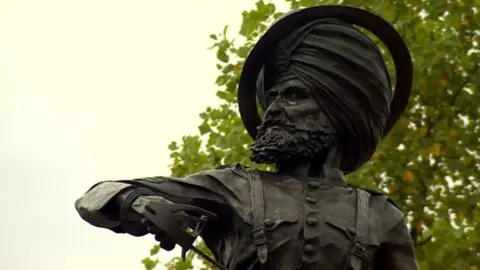 BBC
BBCA statue in tribute to 19th Century Sikh soldiers has been unveiled.
The 3m (10ft) tall sculpture, by artist Luke Perry, has been placed in Wednesfield, Wolverhampton.
It commemorates the Battle of Saragarhi, considered by some military historians as one of history's great last-stands.
Councillor Bhupinder Singh Gakhal, who helped develop the plans, said he hopes it will lead to more people knowing about the battle.
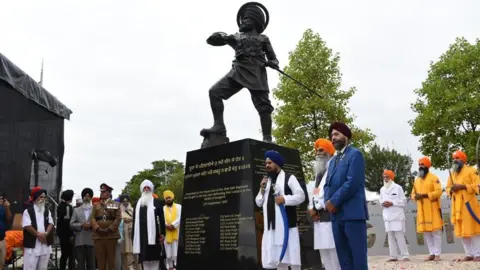 City of Wolverhampton Council
City of Wolverhampton CouncilDuring the battle on 12 September 1897, 21 Sikhs died defending a British army post from 10,000 Afghan tribesmen.
Sikhs make up almost 10% of Wolverhampton's population - almost 23,000 people.
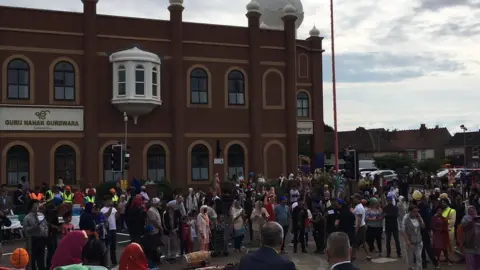 City of Wolverhampton Council
City of Wolverhampton CouncilThe statue was commissioned by Guru Nanak Gurdwara whose members undertook a £100,000 fundraising programme for the monument.
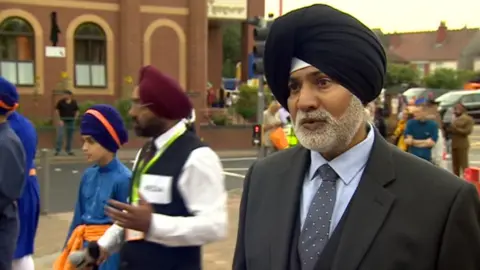
City of Wolverhampton Council also contributed £35,000 towards the memorial after it agreed to transfer land for the statue to the Gurdwara on a 99 year lease.
Mr Gakhal, ward member for Wednesfield South, said: "After today I think the whole world will know what Saragarhi was and the contribution these men made."
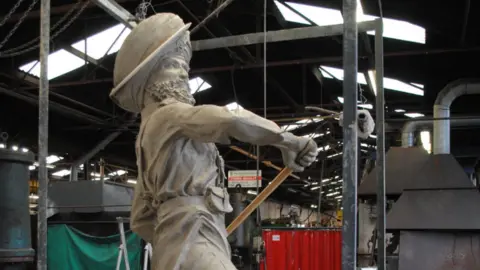 Wolverhampton Council
Wolverhampton CouncilIt was unveiled in Well Lane, near the Guru Nanak Gurdwara, on Sunday, the anniversary of the battle.
Mr Perry has previously made a commemorative statue to honour the South Asian service personnel who fought for Britain during World War One.
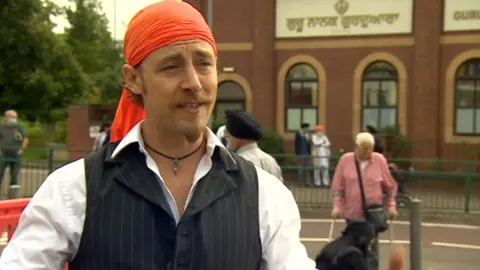
"At the time in 1897, the whole of Britain knew about this, it was in all of the press and it was not just a Sikh or even at that point an Indian thing, it was a very British thing," he said.
"That has been lost over the years, but it has been reclaimed now."

Follow BBC West Midlands on Facebook, Twitter and Instagram. Send your story ideas to: [email protected]
